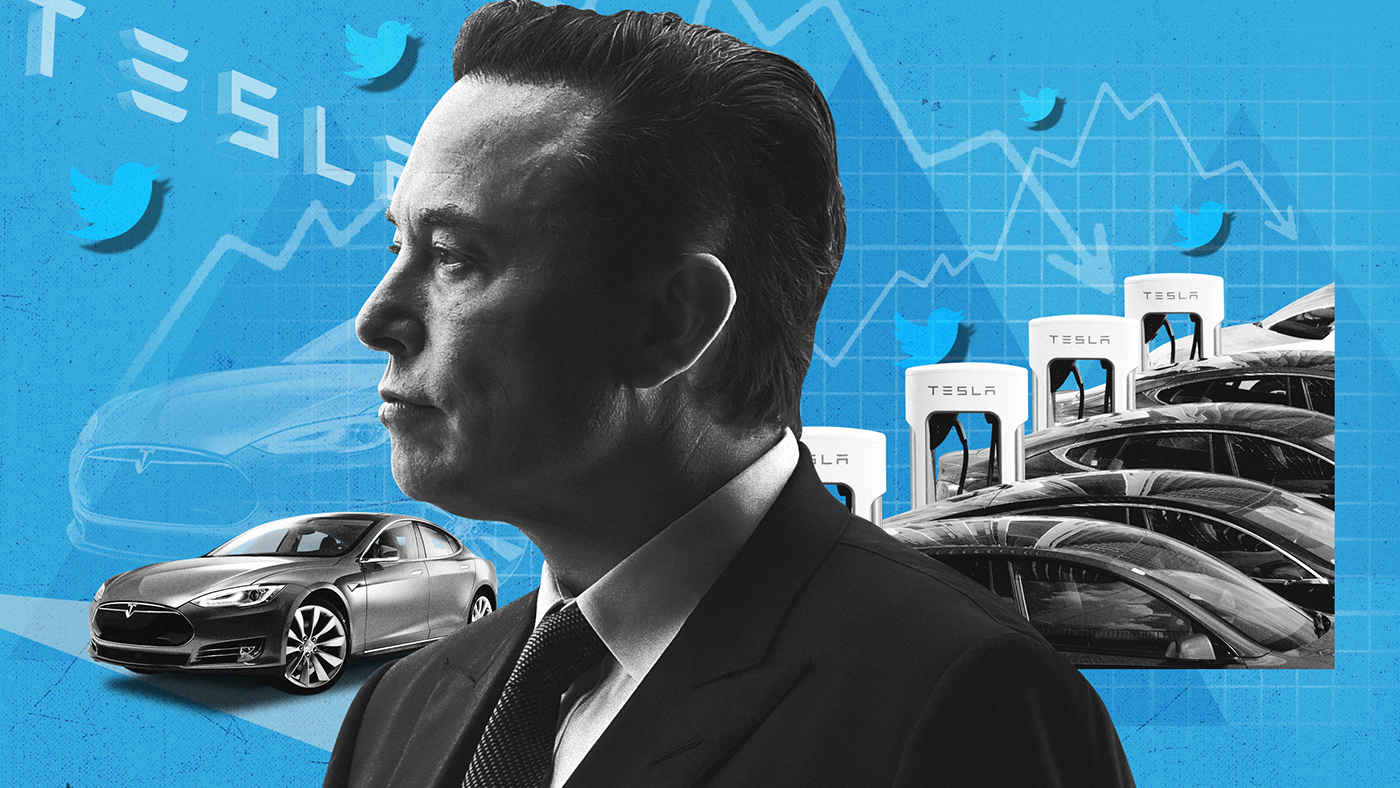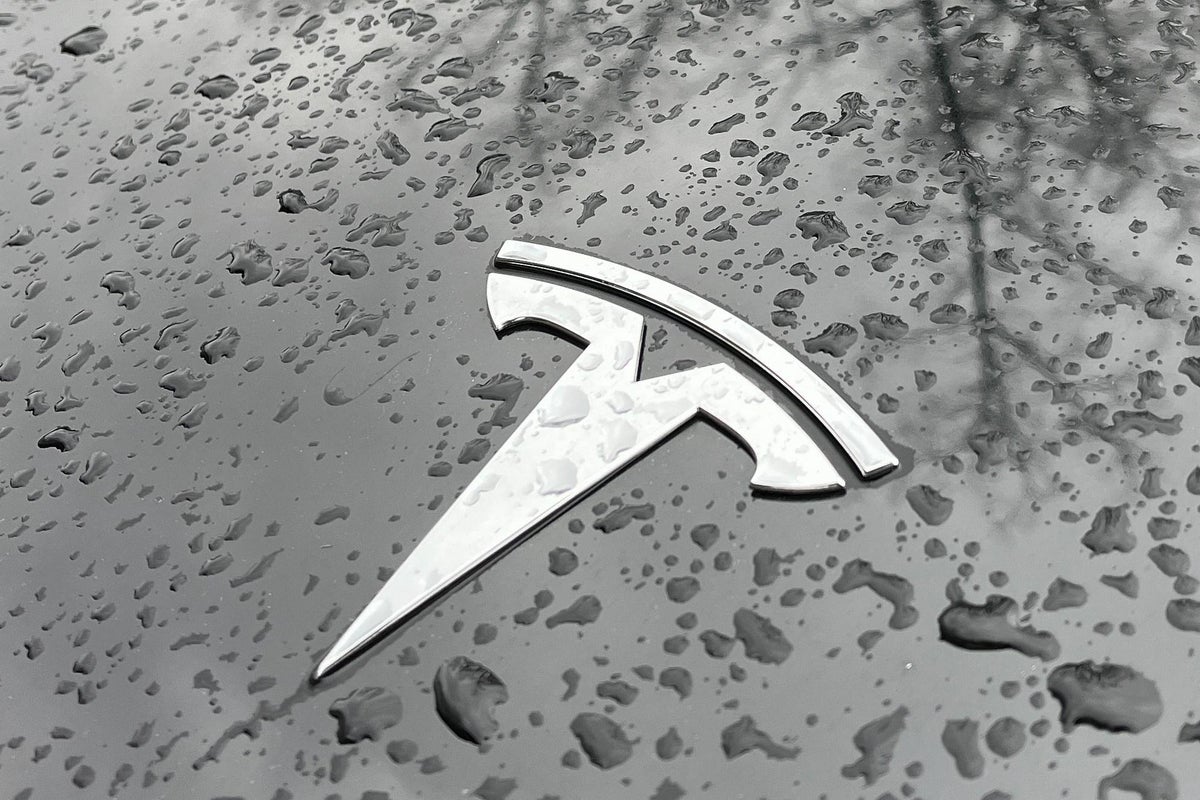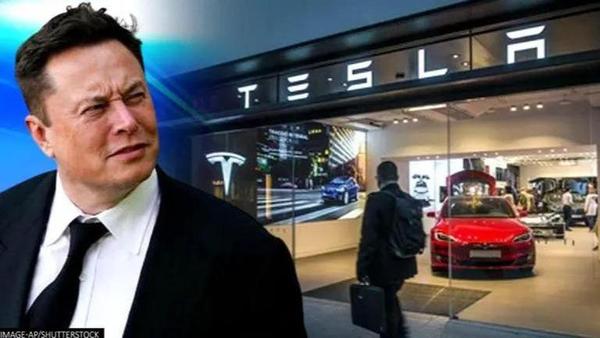Elon Musk Postpones India Visit, Says ‘Very Heavy Tesla Obligations’; Musk’s ‘Ache Din’ Giving Way To Challenges? What’s Wrong With Tesla?
Elon Musk's much-anticipated visit to India, initially planned to coincide with Prime Minister Narendra Modi's schedule, has been postponed due to pressing commitments, according to a confirmation from the Tesla CEO himself. However, much is not working out for Tesla and Elon Musk, as the company is struggling with lower-than-expected sales, recalling of vehicles and falling shares. At the same time, questions are being raised about Musk's leadership; can Tesla and Musk regain their lost glory?

It appears that Elon Musk, Tesla, and Prime Minister Narendra Modi’s timelines are aligning, as ‘ache din’ seem to have transformed into challenges.
Elon Musk has delayed his visit to India due to “very heavy obligations,” as confirmed by the Tesla CEO on Saturday.
Initially, Musk had stated his intention to travel to India from April 21 to 22 to meet Prime Minister Narendra Modi and potentially disclose plans to enter the Indian market.
“Unfortunately, very heavy Tesla obligations require that the visit to India be delayed, but I do very much look forward to visiting later this year,” Musk stated on X.
Musk’s announcement was in response to an account named ‘DogeDesigner,’ which referenced a report stating that the X owner would not be able to make his scheduled trip to India, purportedly due to a conference call on April 23 in the US to address questions on Tesla’s first-quarter performance.
On April 10, Musk tweeted, “Looking forward to meeting with Prime Minister Narendra Modi in India!”
Musk was anticipated to announce an investment of $2 billion to $3 billion in New Delhi, primarily for constructing a factory in India. The same followed the government’s announcement of a policy reducing high tariffs on imported cars if companies invest locally.
Additionally, Musk was scheduled to meet executives from various space startups in New Delhi.
The investment is in the pipeline, even as he awaits regulatory approvals from the Indian government to offer his Starlink satellite broadband services in India.
Tesla’s Big Test
Tesla might have seen the India announcement as an opportunity to reassure investors following months of share-price declines, compounded by news on April 15 of its intention to lay off over 10% of its global workforce.
When Tesla unveils its quarterly results on Tuesday, Musk is anticipated to confront challenging inquiries from analysts regarding declining sales, mounting competition from Chinese EV manufacturers, and the future of crucial Tesla products.
On April 5, it was reported that Tesla had paused development of its much-awaited affordable EV, commonly referred to as the Model 2.
However, Musk dismissed the report as false without specifying any inaccuracies, although he has not addressed the model further, leaving investors seeking clarity.
Notably, acccording to sources, Rohan Patel, a Tesla public policy executive reportedly involved in the company’s plans for entry into India, also resigned this week.
The Cybertrucks Fallout
Tesla has more on its plate, though. A slew of challenges led to a drop of more than 11% in share value in April and a staggering 37% decline this year for the electric-vehicle manufacturer.
The U.S. National Highway Traffic Safety Administration (NHTSA) revealed on Friday that Tesla is recalling 3,878 Cybertrucks to address a potential issue with the accelerator pedal pad, which could become dislodged and lodged in the interior trim, which could inadvertently accelerate the vehicle, increasing the risk of a crash.
Tesla commenced deliveries of its Cybertruck electric pickup truck late last year after a two-year delay due to production challenges and battery-supply limitations.
Before the market opened on Friday, the company’s shares declined by nearly 3%, extending its five-session losing streak, during which the stock plummeted by approximately 14%.
The NHTSA stated that Tesla will replace or repair the accelerator pedal assembly at no cost, with owners receiving notification through mailed letters in June.
In the first quarter of 2024, the EV manufacturer experienced three recalls affecting approximately 2.4 million vehicles, as reported by recall management firm BizzyCar.
Nevertheless, the majority of Tesla recall issues are typically resolved through over-the-air software updates.
In February, Tesla recalled roughly 2.2 million vehicles in the United States due to an incorrect font size on warning lights. U.S. safety regulators also escalated their investigation into the company’s vehicles regarding power steering loss to the status of an engineering analysis.
Can Slashing Prices Help?
Tesla slashed $2,000 off the prices of three of its five models in the United States late Friday, emphasising the challenges confronting the electric vehicle manufacturer.
The reduced prices affected the Model Y, Tesla’s most popular model and the top-selling electric vehicle in the US, as well as the Models X and S, its older and more expensive models.
The price adjustments did not impact the Model 3 sedan and the Cybertruck, maintaining their existing prices. Consequently, the starting price for a Model Y dropped to $42,990, while a Model S now begins at $72,990, and a Model X at $77,990.
This move occurred after Tesla’s stock plummeted below $150 per share, erasing all gains made over the past year.
The company’s stock price is declining by about 40% this year amid falling sales and heightened competition; discounted sticker prices are an attempt to attract more car buyers.
Industry analysts have been anticipating Tesla’s introduction of a small electric vehicle priced around $25,000, known as the Model 2.
Reports this month suggesting that Musk intended to abandon the project fueled further uncertainty regarding the company’s trajectory, although Musk refuted these claims as false.

Calling The Shots
The price reductions marked the conclusion of a challenging week at Tesla, which announced on Monday its decision to reduce its global workforce by 10%, affecting approximately 14,000 positions.
Tesla is slated to unveil its first-quarter earnings on Tuesday.
Earlier this month, the company revealed a significant decline in global sales from January to March, attributing it to heightened competition worldwide, a slowdown in electric vehicle sales growth, and previous price reductions failing to attract more buyers.
The decline marked Tesla’s first year-over-year quarterly sales drop in nearly four years.

What’s the Issue with Tesla?
Tesla has made itself vulnerable by not introducing new products quickly enough to sustain consumer interest. Moreover, its CEO, Elon Musk, has become a figure with whom many individuals are hesitant to align themselves, even for a quality car.
Meanwhile, electric vehicle sales overall in the United States have plateaued in recent months.
Although EV sales growth has been tapering for some time, estimates from Cox Automotive suggest that in the last two quarters, EV sales have remained relatively stagnant.
However, a deeper examination reveals that what appears to be a general lack of interest in electric vehicles may primarily reflect a reduced enthusiasm for Tesla.
Several automakers, including Audi, BMW, Mercedes, and Rivian, have reported electric vehicle sales growth exceeding 50% over the past year, as highlighted by Stephanie Valdez Streaty, an analyst with Cox Automotive, in a presentation summarizing industry trends for the new year.
Ford later announced an 86% increase in its EV sales.
“Analyzing the data, it appears that the significant slowdown in electric vehicle (EV) adoption is primarily affecting Tesla,” stated Valdez Streaty.
Throughout 2024, Tesla’s stock price has plummeted by nearly a third, reflecting disappointing sales figures and profits for the company. It stands as one of the poorest performers within the S&P 500 index thus far this year.
Although Tesla’s sales surged by 38% last year compared to 2022, investors had anticipated even stronger growth. In January, Tesla cautioned that sales expansion this year would be notably slower.
Contrary to expectations, sales have remained stagnant in 2024. Instead, Tesla’s global first-quarter sales plummeted by over 20% compared to the same period last year, marking the first instance of sales decline since the onset of the COVID-19 pandemic.
Chinese automakers such as BYD pose a significant global threat, though they have yet to enter the US market. Musk himself has referred to them as “the most competitive car companies in the world.”

The Musk Factor
Elon Musk, Tesla’s CEO, may also be contributing to the brand’s challenges with his increasingly contentious public statements.
In recent years, Musk has defended racist outbursts and endorsed antisemitic remarks. Additionally, Tesla removed references to diversity and inclusion from its financial reports, while X, which Musk renamed Twitter following his acquisition, reinstated the accounts of overt racists.
Survey data from Caliber, a Danish reputation management firm, suggests that Tesla’s reputation and customer purchase consideration for its vehicles experienced a sharp decline starting around early 2022—the year Musk assumed control of the social media platform formerly known as Twitter—and have continued to deteriorate since then.
While Caliber’s data doesn’t definitively pinpoint specific causes, the company’s research has also revealed unfavorable opinions of Musk himself.
According to Søren Holm, head of client services for Caliber, Musk and Tesla are closely intertwined in public perception to a degree surpassing most CEOs and their respective companies.
“He couldn’t possibly be more prominent atop Tesla than he is. He’s the person of the year, he’s the wealthiest individual alive. He’s lauded everywhere,” Holm remarked in an interview with CNN. “Yet, he’s leveraging all this typically positive attention to generate negative attention around himself.”
Both Musk and Tesla receive low scores in Caliber’s analyses for “trust and likability.”
Recent declines in these scores for X, the social media platform formerly known as Twitter before Musk’s acquisition in 2022, suggest that the individual at the helm of both companies could be linked to their diminishing public perception.
Opinions of Tesla experienced a sharp decline beginning in 2022, coinciding with Musk’s public opposition to Covid-19 restrictions. This downward trend has persisted as Musk has made or endorsed statements that were racist, anti-semitic, or controversial.
“He’s starting to develop a reputation for being somewhat unpredictable,” remarked Holm.
Holm noted that as competing models enter the market with comparable pricing, quality, and performance to those offered by Tesla, the negative associations Musk brings to the brand could deter potential buyers.







